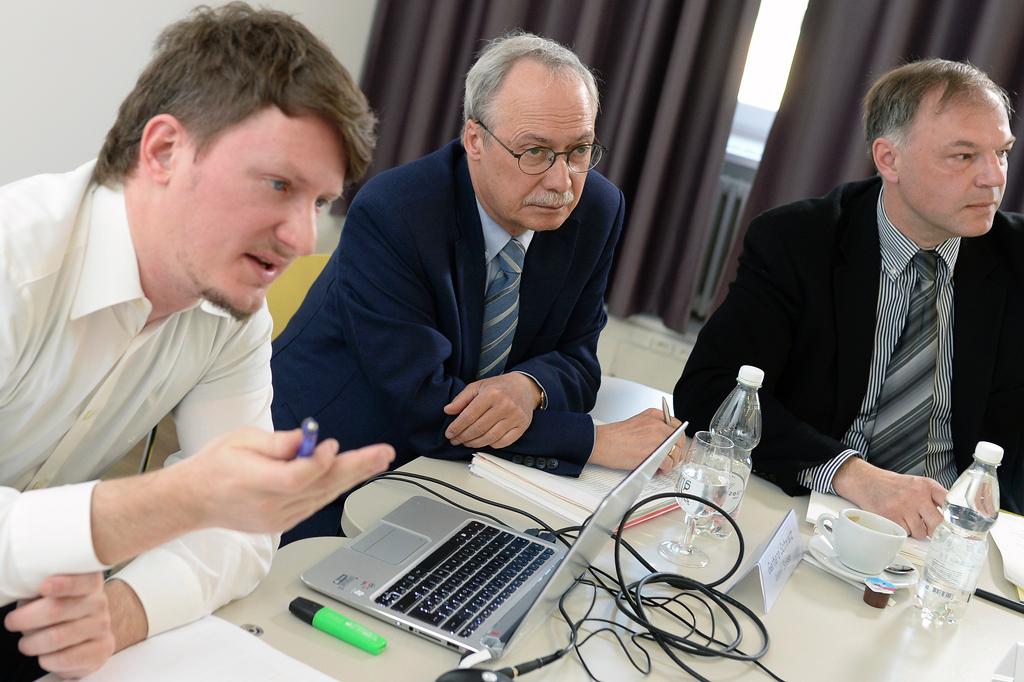
More democracy through greater focus
Not just the number, but also the success rate, of people’s initiatives* has increased notably of late. But hardly any of the initiatives approved have been implemented in the full spirit of their initiators.
To stop the most important instrument in Switzerland’s direct democracy turning into a farce, reforms are urgently needed to improve the effectiveness of initiatives while preventing their abuse.
The initiative, that keystone of Swiss direct democracy, has become distanced from its true function as a tool for expressing popular opposition.

Its purpose today has turned more into a party political instrument for certain governing parties, or a marketing gambit for the wishes of specific minority interests.
The chances of initiatives being passed have improved considerably in recent years. In the 110 years from 1891 to 2001, barely 12 out of 145 initiatives were approved. By contrast, since 2002 alone, no less than 10 (of 53) have passed.
But of the plebiscites approved, barely any have been implemented according to the wishes of its backers.
That hides a major danger: the more voters realise implementation is assured only insofar as no one is particularly badly affected, the more thoughtlessly they’ll be inclined to support radical proposals.
That will result in initiatives losing their real value – but actually, in spite of that, becoming increasing sources of institutional uncertainty.
Founded in 2000, the Zurich-based Avenir Suisse considers itself as an independent think-tank.
According to its mission statement, Avenir Suisse develops ideas for the future of Switzerland as a business location.
It adheres to a free-marked policy and is supported by more than 100 companies and personalities from different sectors of the economy.
Avenir Suisse is a member of the Stockholm network, an umbrella organisation for market-oriented European think-tanks.
A bundle of small, but effective, reforms could allow the use of initiatives to be better structured and made more objective to improve the quality and legitimacy of their outcomes.
One or several
The reforms, which could be implemented individually or cumulatively, should help restore the role of the right to political self-determination.
1. Checking an initiative proposal by the Federal Chancellery before initiators start collecting signatures: under the current rules, parliament is responsible for checking the contents of proposed initiatives for admissibility. But that inevitably subjects parliament to a conflict of interests. Transferring this function to the Federal Chancellery before signature collection starts could allow more rigour and impartiality.
2. A high hurdle for signatures: initiatives in their current form aim to amend the constitution – in other words, the country’s paramount legal framework. So any limitation in terms of content would be illogical. But the hurdle should be raised from the current 100,000 signatures to 210,000 (equivalent to 4% of the electorate).
3. Vote on enacting legislation: the period during which an initiative, once approved by voters, becomes transcribed into law often opens the door to party political tactics. Introducing an obligatory vote on the enacting legislation would eliminate such shenanigans as voters would invariably have the last say. Any concerns about “respecting the popular will” would be eliminated.
4. Introducing the right to initiate legislation: the constitutional conformity of many initiatives is currently dubious. So constitutionally valid proposals should be allowed to be introduced directly as legislation. That has already applied for more than 100 years at cantonal level. The signatures of 2% of voters should suffice for introducing federal legislation. A hurdle of 105,000 signatures would be roughly the same as for initiatives today.
5. Only one measure per voting day: voting on multiple proposals on the same day raises the danger of electors having insufficient information on each measure. A rule limiting voting to only one proposal per polling day would make for more serious political debate.
The proposed reforms do not mean any limitation to direct democracy, but greater focus and differentiation. They are based on the principle that voters’ and other actors’ understanding of the binding nature of this instrument will increase their sense of responsibility in using it.
The views expressed in this article are solely those of the author, and do not necessarily reflect the views of swissinfo.ch. *In line with our own style guidelines, the term “referendum” used by the authors was changed to “(people’s) initiative”.
Opinion series
swissinfo.ch publishes op-ed articles by contributors writing on a wide range of topics – Swiss issues or those that impact Switzerland. The selection of articles presents a diversity of opinions designed to enrich the debate on the issues discussed.

In compliance with the JTI standards
More: SWI swissinfo.ch certified by the Journalism Trust Initiative































You can find an overview of ongoing debates with our journalists here . Please join us!
If you want to start a conversation about a topic raised in this article or want to report factual errors, email us at english@swissinfo.ch.